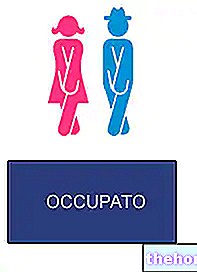Many people wonder what the normal frequency of defecation is, worried that the number of bowel movements produced is insufficient or excessive. Although it is legitimate to question the "famous" concept of bowel regularity, or how often it is normal to "go to the bathroom", the answer is too often influenced by prejudices and false beliefs. Some people have an almost manic attitude towards this aspect, because they are convinced that only a daily defecation is synonymous with health. Not to mention those uncomfortable bizarre comparisons with animals, such as the cow, very different from humans for eating habits and gastro-intestinal function. For these reasons, many people consider themselves constipated on the basis of a purely and exclusively subjective malaise.

All this, in some subjects, even generates phenomena of abuse towards drugs and laxative supplements: after having obtained the long-awaited evacuation, it is expected to produce a new one the following day, ignoring that after the energetic defecation induced by the laxative it is necessary a period of time of a few days before the necessary waste accumulates in the intestinal tract.This condition of false constipation should in no way be understood as an anomalous phenomenon and in no way justifies the new intake of purgatives.
- The normal frequency of bowel movements varies widely among healthy people: some people may have three bowel movements per week, while others may have three per day. Within this range, the function of eliminating faecal waste can be considered normal
- Generally, a frequency of faecal evacuations of less than three episodes per week is not sufficient to speak of constipation; a person suffering from constipation, in fact, also complains of other symptoms and signs - such as the sensation of incomplete intestinal emptying, anorectal obstruction, difficulties and efforts to evacuate, the evacuation of hard stools and the need for digital evacuation maneuvers - in at least one in 4 defecation.
- The frequency of evacuation can vary over time, in relation to dietary habits and the environmental and psychological situation. For example, it is common to perceive a thinning of defecations when one goes to tourist resorts for holidays
- In other words, if the stools have a normal appearance and consistency, even an excessive or insufficient stool frequency can be considered physiological. Conversely, if the stools show variations in color (e.g. if they are particularly light or dark), in consistency (e.g. watery or too hard) or in shape (ribbon-like or goat stools), it is good to undergo a medical check-up to identify the causes of what is most likely a sign of a gastrointestinal problem.
- Celiac disease
- Crohn's disease
- Hyperthyroidism
- Irritable bowel syndrome
- Side effects of some drugs
- Ulcerative colitis
- Food poisoning
- Celiac disease
- Hypothyroidism
- Irritable bowel syndrome
- Intestinal obstruction due to the presence of a tumor or a large polyp
- Side effects of some drugs
- Excessive consumption of fruit and sugary foods
- Excessive consumption of vegetables and whole foods
- Insufficient consumption of foods rich in fiber, such as fruits, vegetables and whole grains
- Insufficient fluid intake
- Sedentary lifestyle




























